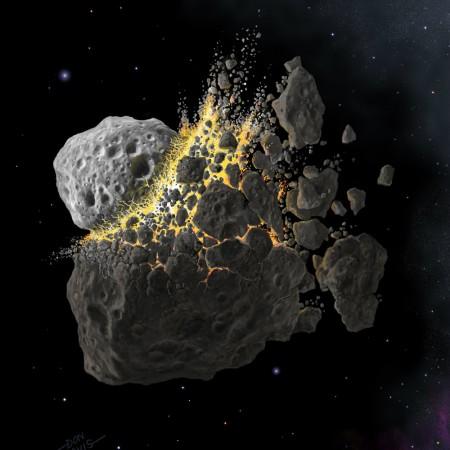
It was around 66 million years ago that a giant doomsday space rock hit the Earth, and resulted in the extinction of dinosaurs. Space experts including Dr Iain McDonald and physicist Neil deGrasse Tyson believe that devastating asteroid hits like these are not confined to the past, and it may happen in the future too. Even though no asteroid is posing threat to the Earth in the near future, an unexpected visitor that misses human radars may create chaos anytime, and if it happens, millions may die within seconds before understanding what is going on.
Is Earth defenceless against deep space threats?
Georgetown University Law professor David Koplow revealed that humans are literally defenceless if a giant asteroid approaches the Earth, especially due to outer space treaties between nations.
"There are two important treaties, both long-standing and joined by most of the countries in the world, that specifically forbid the placement of nuclear weapons in orbit and the use of nuclear explosions in space. Suppose there is an asteroid coming and we do try to deflect it, but we are only partially successful, instead of hitting country A, it hits country B. There's a treaty that imposes absolute liability if your space activity causes harm to another country. Overall, we're not quite there yet in terms of a solution to these issues, but it's better to think through these contingencies now, rather than later," said Koplow, Express.co.uk reports.
Talking about the planetary defense mission, Koplow revealed that it is actually a very little tested project with no proven track record of success.
The vitality of a pre-emptive strike
As fears surrounding threats from deep space loom up, space scientist Natalie Starkey believes that a pre-emptive nuclear strike is a perfect way by which planet Earth can be protected. It should be noted that NASA had previously considering nuking an approaching asteroid, but this move could cause radioactive rain pouring to the surface of the planet, which will do more harm than good.
As per Starkey, a nuclear pre-emptive strike is basically a concept where humans should blow up an asteroid on one of its prior close visits.
"If the object was one that passed Earth frequently, moving ever closer to impact with each orbit, then it could be blown up in a pre-emptive strike on one of its prior close-Earth visits before the one that was predicted to cause total annihilation, nuking it as it was heading away from Earth. In this way, any radioactive fallout from the destruction wouldn't affect life on Earth," said Starkey.








